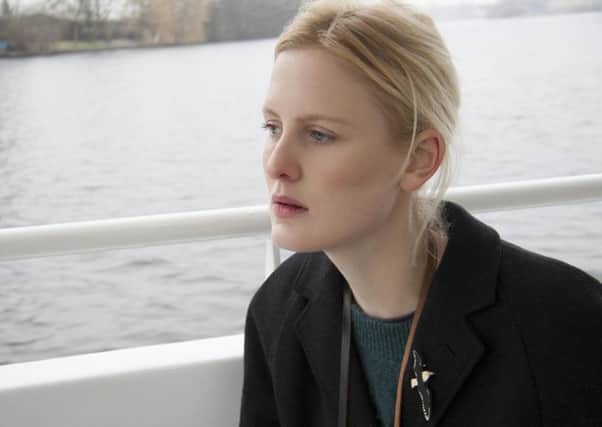Stuart Kelly on the year in books


If there is a Heaven, I suspect that Angela Carter is looking down with a slight smirk over this year. It’s not just that Edmund Gordon’s biography of her has been one of the stand-out books of 2016, but that I suspect she might be surveying the literary landscape with a wry sense that her influence has never been more evident. Not in its weak sense – I think we have all had enough of camp Victoriana and mimsical dressing-up boxes – but in the sense of radical, engaged and innovative fiction.
Carter was interested in the ambiguities of gender, and two of the year’s finest novels – Sara Taylor’s The Lauras and Jenni Fagan’s The Sunlight Pilgrims – explored the topic with assurance and empathy and a considerable degree of technical innovation. It would be unfortunate if these novels were read as just a symptom of interest in trans identities. They are fundamentally human and humane books. Another Carteresque trend was the rise of the neo-Gothic. Sarah Perry’s The Essex Serpent deservedly won the Waterstones Prize; the equally eerie Himself by Jess Kidd was deliciously chilling, as was Helen Oyeyemi’s What Is Not Yours Is Not Yours. Carter would surely have enjoyed Joanna Kavenna’s Alice-in-quantum-physics A Field Guide To Reality, and Nicola Barker’s literary mugging of the historical novel, The Cauliflower. Returning to the neo-Gothic, Andrew Michael Hurley’s Costa-winning The Loney is eminently re-readable with its hidden alternative “solution” to the diablerie; much the same could be said of Graeme Macrae Burnet’s lauded and Booker-shortlisted His Bloody Project. In the same vein we had the most sotto voce novel yet from China Miéville, The Census-Taker, which proved that even when he whispers, he roars.
Advertisement
Hide AdAh, the Man Booker. It is unfortunate that a very worthy winner indeed – Paul Beatty’s uncompromising and uncomfortable The Sellout – was slightly overshadowed by yet more snivelling from English novelists about letting the Americans play with our ball. It really is sounding like special pleading now. Beatty’s novel was akin to other investigations into the more uneasy aspects of race and identity; Colson Whitehead’s The Underground Railroad, Jonathan Safran Foer’s pyrotechnically brilliant Here I Am (why was it not even longlisted for the Man Booker? Was it too American?) and Ken Liu’s collection, The Paper Menagerie.
With the world moving so fast – remember when President Trump was a throwaway gag in The Simpsons? – it is encouraging to note that we have novelists fleet of foot enough to race beside history. Ali Smith’s Autumn and AL Kennedy’s Serious Sweet both engaged with our fractious and disputatious reality. Both are fundamentally comic writers, but while Smith is comic in terms of benign absolution, Kennedy is comic in terms of exasperated incomprehension. Another Smith, Zadie, dissected celebrity culture, political naivety and childhood selfishness with the wonderful Swing Time.
Non-fiction highlights of the year included Chitra Ramaswamy’s Expecting – the “new nature writing” applied to the gravid body – and Amy Liptrot’s The Outrun – the “new nature writing” applied to the grievous body. Minoo Dinshaw’s Outlandish Knight was a particularly eloquent biography of Sir Steven Runciman, which balanced distance and fascination perfectly; the other biography which held me so fast was Donald Moody’s third and final volume of his life of the poet Ezra Pound. Olivia Laing’s The Lonely City set in New York has rumbled around in my head all year; eliding art criticism and autobiography, outrage and elegy. James Crawford’s Fallen Glory was an epitaph to lost buildings and a reliquary of what they meant and mean.
All these books will live on, on our shelves. But the literary world is not just page and ink anymore, and with festivals burgeoning and spoken word events proliferating, it would be remiss not to mention some of the more ephemeral highlights of the year. Luckily the City of Literature has files you can download of the writers appearing in their Story Shop feature at the Edinburgh International Book Festival. I’d highly recommend the work of Beth Cochrane and Laura Anderson. It’s worth delving through their entire archive though: one of the former participants, Martin MacInnes, with Infinite Ground, published one of this year’s most intriguing debuts. In terms of performance alone, it would be difficult to choose between Sebastian Barry, reading from his American-set Days Without End, and Eimear McBride, whose captivating reading from The Lesser Bohemians could have happily gone on for twice as long. But my favourite event, as an event, would have to be chairing John Hume at the Wigtown Book Festival, for his delightful Church Buildings In Wigtownshire. I have rarely had the pleasure of hosting such a gracious, good-humoured and enlightening interlocutor.
My unintentional discovery of the year has to be Canadian author Lynn Coady, who appeared at the Ullapool Book Festival. Her novel, The Antagonist, is an astounding piece of work, where the narrator writes to a novelist whom he once knew, and whom he thinks traduced his life. I went on to read her entire oeuvre, and was not disappointed. As for 2017? Carter has loomed large over the year, but on a train journey to London I recently re-read Iris Murdoch’s The Time Of The Angels. When are we due the Murdoch re-appraisal? Because that novel knocked the socks of most things I have read this year.